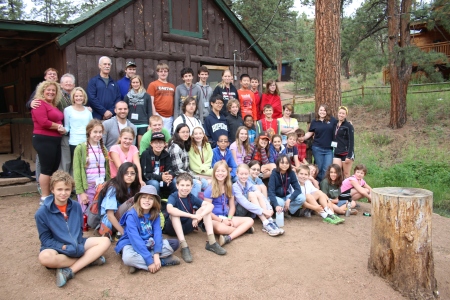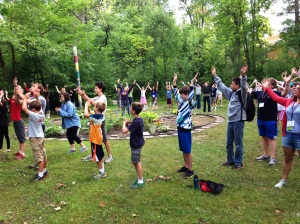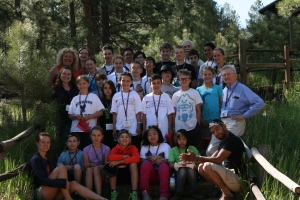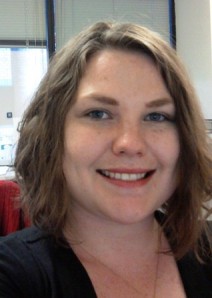By Jessica Houben
 IEA’s programs – Academy, Apprenticeship, the Caroline D. Bradley Scholarship, Yunasa, and Yunasa West – are geared toward gifted children ages 7-18, who think and learn differently from the norm. Every year we receive numerous applications for each program, and every applicant is truly amazing and unique. Identifying students who will most benefit from our programs and services is critical to our success. In order to do this, we need to find out who they are, what they know, and what interests them.
IEA’s programs – Academy, Apprenticeship, the Caroline D. Bradley Scholarship, Yunasa, and Yunasa West – are geared toward gifted children ages 7-18, who think and learn differently from the norm. Every year we receive numerous applications for each program, and every applicant is truly amazing and unique. Identifying students who will most benefit from our programs and services is critical to our success. In order to do this, we need to find out who they are, what they know, and what interests them.
Because each gifted child has so many interests and dimensions, IEA feels that it is important to gather a variety of information to assist our selection committees in matching applicants with the most appropriate programs and services. These decisions are very difficult. We have to determine the students for whom the program will best fit their intellectual, social, emotional, spiritual, and physical needs. Even when applicants are not chosen or placed, they are still some of the best! We have to look at all aspects of the applicant, as grades and test scores do not tell the whole story. This is why each application that comes to us is evaluated by several members of our staff, why we conduct interviews, and why we use a portfolio-based application.
Our portfolio-based applications are designed to provide each student with the opportunity to highlight their individual talents, skills, creativity, and problem solving abilities. These are not things we could determine from a test score alone.
As part of our applications, we ask for several things:
- Application form (we need everyone’s general information)
- Short-answer questions
- Essay questions
- Test scores
- Transcripts
- Letters of recommendation
- Parent statements
- Samples of student work
Short-answer questions show us what the students are passionate about, what their interests are, and what their daily life is like outside of all of the academics in which they are involved.
Essay questions highlight problem solving skills and help us to understand how students think about things, what their perspective is on the world, and how they see themselves as part of their families, communities, and society as a whole.
Test scores give us a measure of the students’ strengths, so that we can place them in a situation that is the best fit for their educational needs. We like to set our participants up for success!
Transcripts tell us the applicants’ academic stories, what their experiences have been, and what they are currently doing to meet their goals.
Letters of recommendation give us a sense of the applicants’ attitude, values, and unique characteristics that other aspects of the application are unable to provide. These letters are usually from people who have worked with the student and know them well.
Parent statements provide us with even more information about a student’s personal strengths and weaknesses, give insight into the applicant’s character, and highlight the reasons why he or she would be a good fit for our program. A parent’s voice is often an invaluable resource for assessing who an applicant is and what he or she has to offer.
Samples of student work demonstrate what the students have already told us through the other pieces of the application. For the Apprenticeship Program in particular, we use the work samples to gauge their past work experiences. For all programs, the work samples often bring an applicant’s passions to life.
We know that students are more than just a list of their academic accomplishments, that there is a person behind the application. This is why it is necessary to have several determining factors when making our decisions, so that we know as much about an individual as possible. We also do our best to create an application that is of interest to the applicant, providing an important opportunity for self-reflection, critical thinking, and discovery. Our hope is that the application and evaluation process helps us to have a positive impact on the lives our programs touch!
Like this post? Please share!







 IEA’s
IEA’s